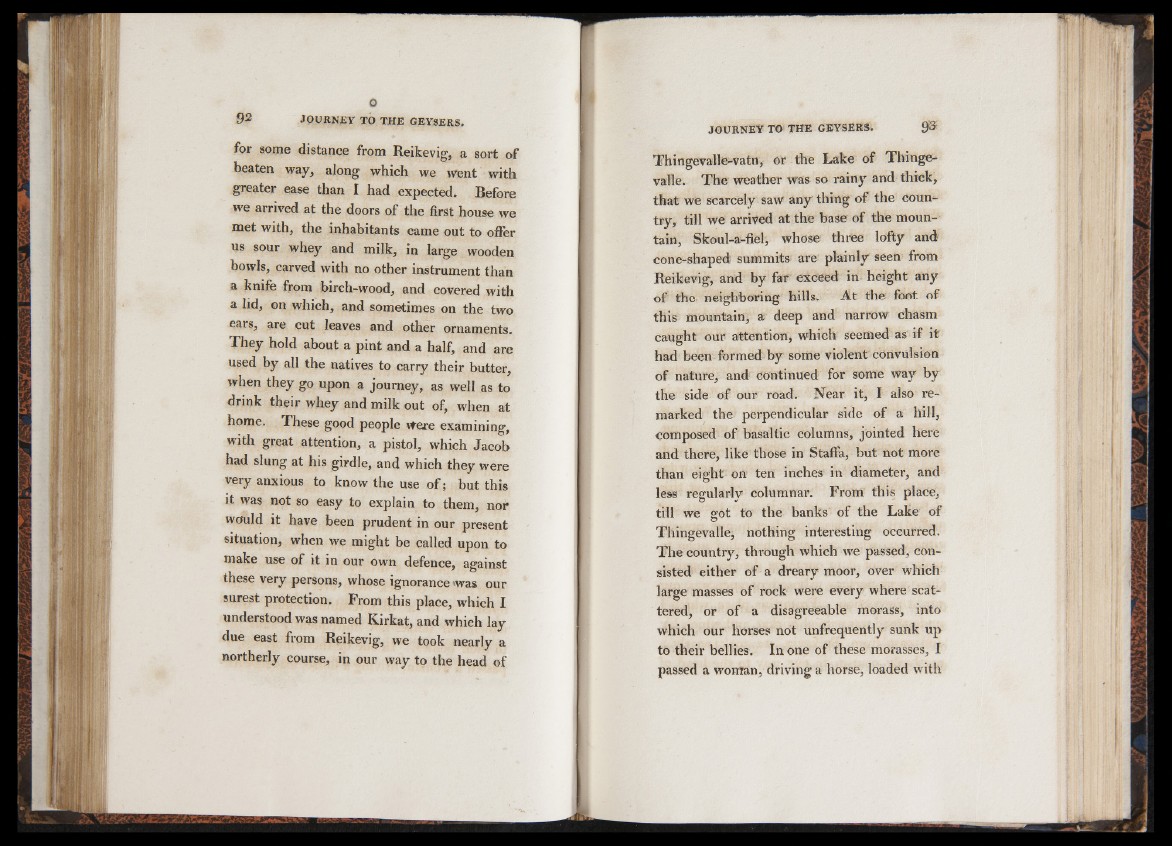
92 JQURNEY TO TH E GEYSERS.
for some distance from Reikevig, a sort of
beaten way, along which we went with
greater ease than I had expected. Before
we arrived at the doors of the first house we
met with, the inhabitants came out to offer
us sour whey and milk, in large wooden
bowls, carved with no other instrument than
a knife from birch-wood, and covered with
a lid, on which, and sometimes on the two
ears, are cut leaves and other ornaments.
They hold about a pint and a half, and are
used by all the natives to carry their butter,
when they go upon a journey, as well as to
drink their whey and milk out of, when at
home. These good people were examining,
with great attention, a pistol, which Jacob
had slung at his girdle, and which they were
very anxious to know the use of; but this
it was not so easy to explain to them, nor
would it have been prudent in our present
situation, when we might be called upon to
make use of it in our own defence, against
these very persons, whose ignorance was our
surest protection. From this place, which I
understood was named Kirkat, and whieh lay
due east from Reikevig, we took nearly a
northerly course, in our way to the head of
JO URN EY TO TH E GEYSERS. § 3
Thingevalle-vatn, or the Lake of Thinge-
valle. The weather was so rainy and thick,
that we scarcely saw any thing of the country,
till we arrived at the base of the mountain,
Skoul-a-fiel, whose three lofty and
cone-shaped summits are plainly seen from
Reikevig, and by far exceed in height any
of the neighboring hills. At the foot of
this mountain, a deep and narrow chasm
caught our attention, which seemed as if it
had been formed' by some violent convulsion
of nature, and continued for some way by
the side of our road. Near it, I also remarked
the perpendicular side of a hill,
composed of basaltic Columns, jointed here
and there, like those in Staffa, but not more
than eight on ten inches in diameter, and
less regularly columnar. From this place,
till we got to the banks of the Lake of
Thingevalle, nothing interesting occurred.
The country, through which we passed, consisted
either of a dreary moor, over which
large masses of rock were every where scattered,
or of a disagreeable morass, into
which our horses not unfrequently sunk up
to their bellies. In one of these morasses, I
passed a woman, driving a horse, loaded with